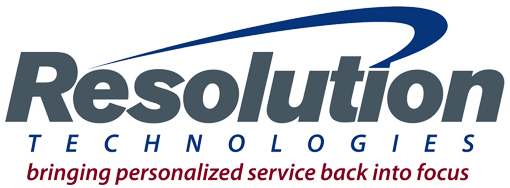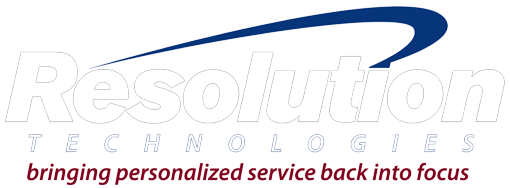The Importance of Soft Skills in Today’s Job Market: How to Develop and Showcase Them
In today’s rapidly changing job market, technical expertise and specialized knowledge are no longer the sole factors that employers consider when making hiring decisions. While hard skills remain essential, soft skills have taken on an increasingly vital role, making them a top priority for companies seeking well-rounded employees. As automation and artificial intelligence continue to evolve, soft skills are becoming the distinguishing factor that separates strong candidates from the rest.
In this blog post, we’ll discuss the growing demand for soft skills, why they’re so important, and how job seekers can develop and showcase these abilities to stand out in a competitive job market.
What Are Soft Skills?
Soft skills, often referred to as interpersonal or people skills, are the personal attributes and behaviors that enable individuals to interact effectively with others. Unlike hard skills, which are specific, measurable abilities such as coding, data analysis, or accounting, soft skills are more nuanced and involve emotional intelligence, communication, adaptability, and problem-solving. Some of the most in-demand soft skills include:
- Communication: The ability to clearly and effectively convey information, both verbally and in writing.
- Teamwork: The ability to work collaboratively with others to achieve common goals.
- Problem-Solving: The ability to think critically and creatively to resolve challenges and find solutions.
- Adaptability: The capacity to adjust to new situations, challenges, or changing environments.
- Time Management: The ability to manage one’s time effectively, prioritize tasks, and meet deadlines.
- Leadership: The ability to inspire, motivate, and guide others to achieve success.
Why Soft Skills Matter in Today’s Job Market
- The Rise of Automation and AI
As technology continues to transform industries, many routine tasks that once required human intervention are now being automated. This shift has led to a greater emphasis on human-centric skills—those that machines cannot replicate. Soft skills such as creativity, empathy, and emotional intelligence are becoming crucial differentiators in the job market because they allow employees to perform tasks that require human judgment, interaction, and understanding.
- Increased Focus on Workplace Collaboration
In today’s workplace, collaboration is key to success. Teams are often cross-functional and diverse, requiring individuals to work effectively with colleagues from various backgrounds and departments. Employers want candidates who can communicate well, resolve conflicts, and contribute positively to a team dynamic. Soft skills, such as teamwork and collaboration, are essential for building strong relationships and fostering a productive work environment.
- Customer-Centric Roles
Many industries, particularly in service sectors such as healthcare, retail, and hospitality, place a strong emphasis on customer interactions. Employees who excel in these roles must possess soft skills like active listening, empathy, and problem-solving to deliver excellent customer service. Even in more technical industries, the ability to build and maintain client relationships is a valuable asset that requires a high degree of emotional intelligence.
- Adaptability in a Rapidly Changing World
The COVID-19 pandemic highlighted the importance of adaptability in the workplace. As companies shifted to remote work and dealt with ongoing uncertainty, employees who could quickly adjust to new workflows, technology, and responsibilities became invaluable. In an ever-evolving job market, adaptability and resilience are soft skills that can help employees navigate change and thrive in dynamic environments.
How to Develop Soft Skills
While some soft skills come naturally, most can be developed through practice and intentional effort. Here’s how job seekers can cultivate these crucial abilities:
- Seek Feedback
Ask for feedback from colleagues, supervisors, and mentors to gain insights into how you can improve your soft skills. Honest feedback can help you identify areas for growth, such as improving communication, managing time more effectively, or becoming a better team player.
- Participate in Team Projects
Whether in a professional setting or through volunteer work, participating in team projects is an excellent way to hone your collaboration and leadership skills. Take the opportunity to practice active listening, delegate tasks, and navigate group dynamics to strengthen your interpersonal abilities.
- Develop Emotional Intelligence
Emotional intelligence (EQ) refers to your ability to recognize and manage your own emotions while understanding and responding to the emotions of others. You can improve your EQ by practicing self-awareness, empathy, and emotional regulation in your personal and professional interactions.
- Practice Problem-Solving
Problem-solving is a skill that can be sharpened by taking on challenges and thinking critically about how to approach them. When faced with an issue, practice breaking it down into smaller parts, considering different perspectives, and evaluating potential solutions.
- Invest in Personal Development
Take advantage of online courses, workshops, or coaching sessions that focus on building soft skills. Many resources are available that specifically target areas like leadership, communication, and time management.
How to Showcase Soft Skills to Employers
Developing soft skills is one thing—demonstrating them to potential employers is another. Here’s how to effectively highlight your soft skills during the job search process:
- Highlight Soft Skills in Your Resume
Incorporate examples of your soft skills in the descriptions of your work experience. For instance, instead of simply stating that you “managed a team,” mention how you “led a team of five employees to successfully complete a project under a tight deadline by fostering collaboration and clear communication.”
- Use the STAR Method in Interviews
During job interviews, use the STAR method (Situation, Task, Action, Result) to describe specific examples of when you’ve used your soft skills. For example, if asked about teamwork, you could share a story of how you worked with a group to overcome a challenge, emphasizing the actions you took to contribute to the team’s success.
- Showcase Soft Skills on LinkedIn
Use your LinkedIn profile to demonstrate your soft skills by asking for endorsements or recommendations from colleagues and supervisors. These testimonials can serve as evidence of your communication, leadership, or teamwork abilities.
- Demonstrate Soft Skills in Real-Time
Interviews and networking events are great opportunities to showcase your soft skills in action. Practice active listening, show enthusiasm, and engage thoughtfully with your interviewer or networking contact. The way you present yourself can speak volumes about your interpersonal abilities.
Conclusion
In today’s job market, soft skills are no longer optional—they are essential. As automation and technology continue to change the nature of work, employers are increasingly valuing qualities like communication, adaptability, problem-solving, and emotional intelligence. By developing and showcasing these skills, job seekers can stand out from the crowd and demonstrate their ability to contribute meaningfully to any workplace.
The good news is that soft skills can be cultivated with effort and practice, and by doing so, you’ll position yourself for long-term career success in any field.


